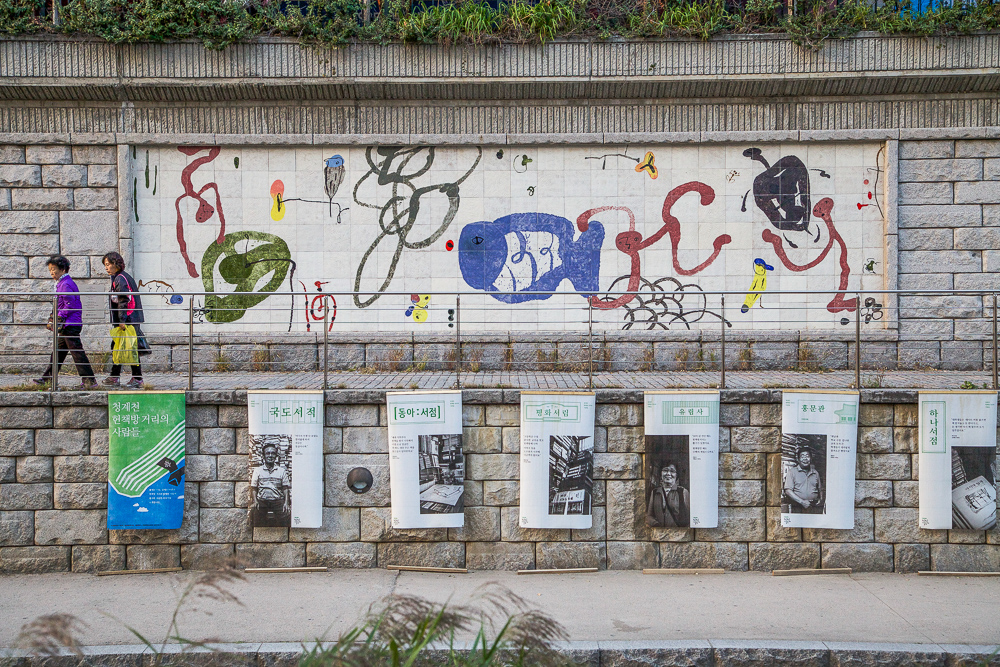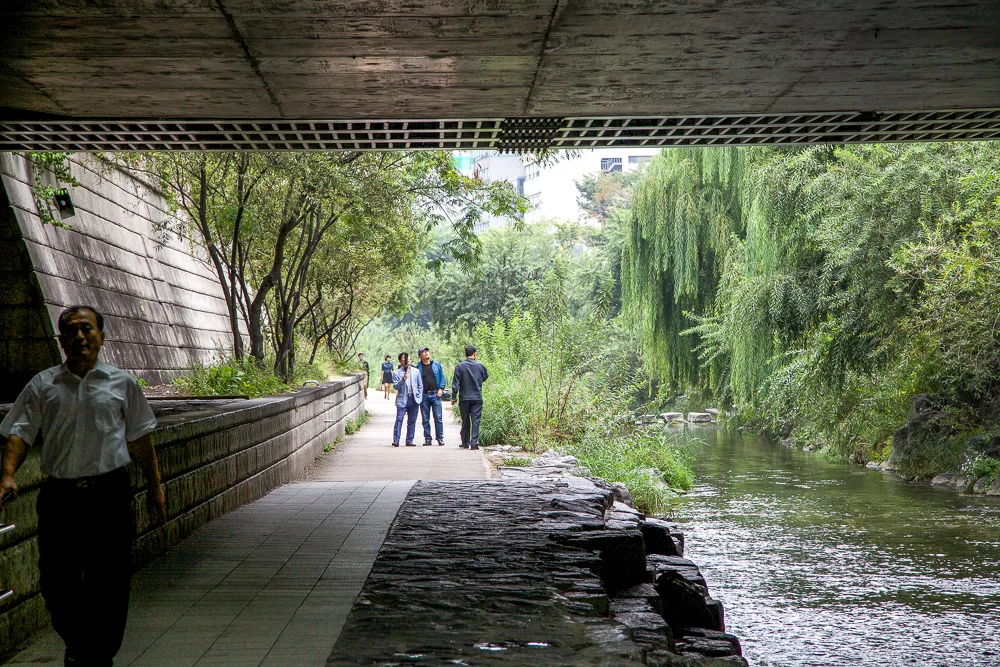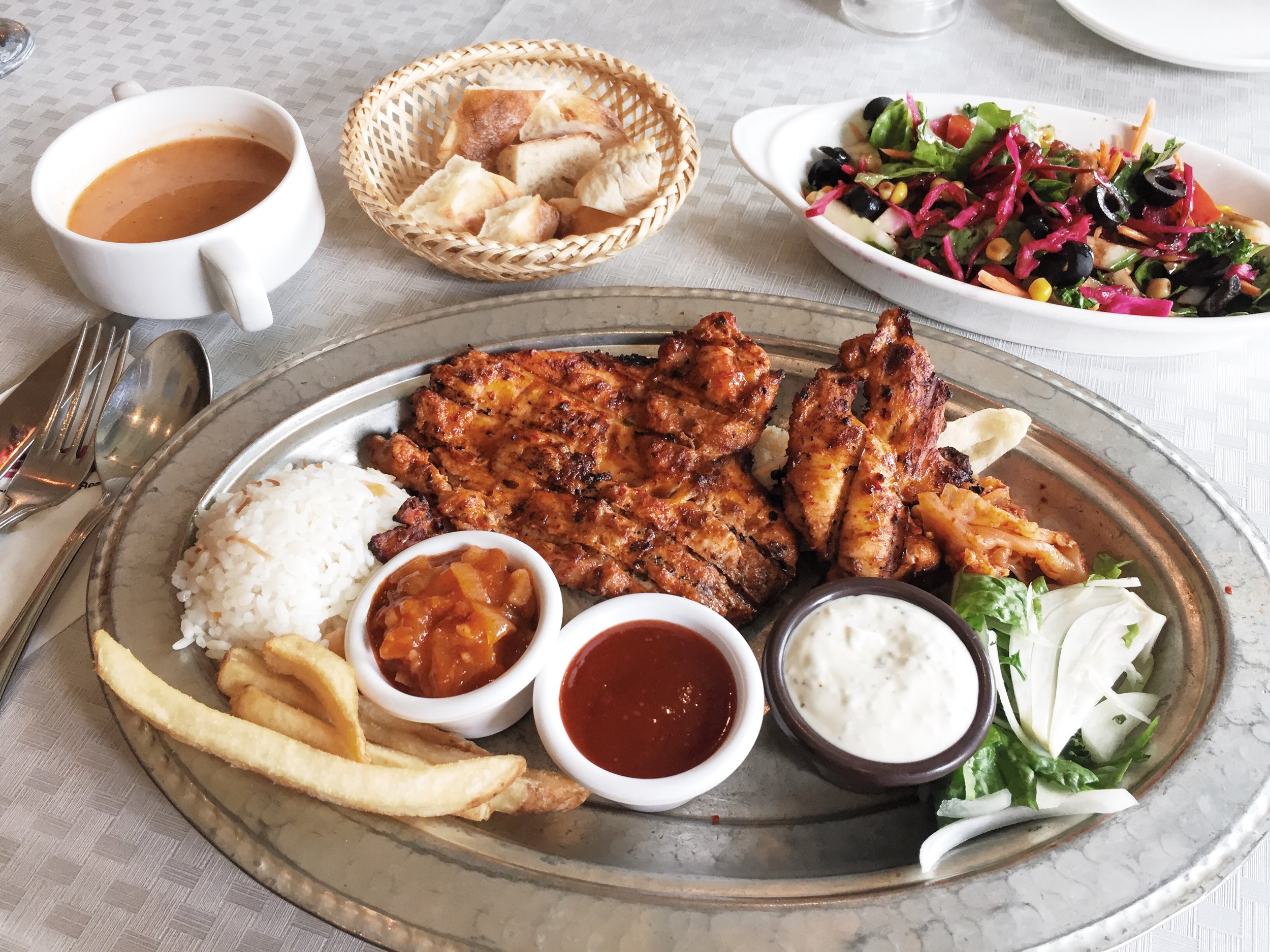FEATURED PHRASES:
*the following phrases are informal (unless stated otherwise), so use towards friends and those younger than you.
어느 밴드가 제일 좋아?
Uhneu bendeuga jaeil joa?
What’s your favorite group?
(Formal: 어느 밴드가 제일 좋아요?)
어느 멤버가 제일 좋아?
Uhneu membuhga jaeil joa?
Who’s your favorite member?
(Formal: 어느 멤버가 제일 좋아요?)
난 엑소가 제일 좋아.
Nan EXO ga jaeil joa.
I like EXO the most.
난 미쓰에이가 제일 좋아.
Nan Miss A ga jaeil joa.
I like Miss A the most.
난 포미닛이 제일 좋아.
4Minute ee jaeil joa.
I like 4Minute the most.
If you look closely, there’s either a GA or E paired with the band names. If the last character of a noun has a bottom consonant, then use E. If there is no bottom consonant, use GA.
난 _____가/이 제일 좋아.
Nan _____ ga jaeil joa.
I like _____ the most.
(Formal: 전 ____가/이 제일 좋아요.)
난 샤이니, 원더걸스 하고 신화 좋아.
Nan Shinee, Wonder Girls hago Shinhwa joa.
I like Shinee, Wonder Girls and Shinhwa.
난 _____, _____ 하고 _____ 좋아.
Nan _____, _____ hago _____ joa.
I like _____, _____ and _____.
(Formal: 전 _____, _____, 하고 ______ 좋아요.)
투애니원 신곡 들어봤어?
2NE1 shingok deuluhbwassuh?
Did you hear 2NE1’s new song?
_____ 신곡 들어봤어?
_____ shingok deuluhbwassuh?
Did you hear _______ new song?
(Formal: ____ 신곡 들어봤어요?)
투애니원 신곡 좋더라!
2NE1 shingok joduhla!
I’m liking 2NE1’s new song!
______ 신곡 좋더라!
_____ shingok joduhla!
I’m liking ______’s new song!
(Formal: 네, ______ 신곡 좋더라고요.)
빅뱅 새로 나온 뮤직비디오 봤어?
Big Bang saelonaon myujikbidio bwassuh?
Did you see Big Bang’s new music video?
________ 새로 나온 뮤직비디오 봤어?
________ saelonaon myujikbidio bwassuh?
Did you see ________’s new music video?
(Formal: ______ 새로 나온 뮤직비디오 봤어요?)
These days young people are shortening 뮤직비디오 (music video) into 뮤비 (myubi).
물론이지! 그 뮤직비디오 대박이야!
Mulloneeji! Geu myujikbidio daebakeeya!
Of course! That music video is the best!
(Formal: 그럼요! 그 뮤직비디오 대박이예요!)
“Fantastic Baby” 춤 배우자!
“Fantastic Baby” choom baeuja!
Let’s learn the “Fantastic Baby” dance!
______ 춤 배우자!
______ choom baeuja!
Let’s learn the ______ dance!
(Formal: 우리 _____ 춤 배워요!)
소녀시대가 콘서트 한대!!!
Sonyeoshidaega consuhteu handae!!!
Girls’ Generation is having a concert!!!
비스트가 콘서트 한대!!!
Beastga consuhteu handae!!!
Beast is having a concert!!!
______ 가/이 콘서트 한대!!!
______ ga/e consuhteu handae!!!
______ is having a concert!!!
(Formal: ______가/이 콘서트 한대요!!!)
콘서트 같이 갈래?
Consuhteu gatchi gallae?
Do you want to go to the concert with me?
(Formal: 콘서트 같이 갈래요?)
같이 가자! 언제? 어디?
Gatchi gaja! Uhnjae? Uhdi?
Let’s go! When? Where?
(Formal: 같이 가요! 언제요? 어디서요?)
NOTE: To learn how to tell the date in Korean, watch KWOW episode 15.
투피엠이 싸인회 있대! 갈래?
2PM e ssaeenhwae eetdae! Gallae?
2PM is having a signing event. Do you want to go?
____ 가/이 싸인회 있대! 갈래?
____ ga/e ssaeenhwae eetdae! Gallae?
____ is having a signing event! Do you want to go?
(Formal: ____가/이 싸인회 있대요! 갈래요?)
민호 오빠, 싸인해주세요.
Minho oppa, ssaeenhae juseyo.
Minho oppa, please give me your autograph.
(FORMAL VERSION)
가인 언니, 싸인해 주세요.
Gain unni, ssaeenhae juseyo.
Gain unni, please give me your autograph.
(FORMAL VERSION)
Name + Title, 싸인해 주세요.
Name + Title, ssaeenhae juseyo.
_________, please give me your autograph.
It’s important to know the words OPPA, NOONA, HYUNG, UNNI and DONGSENG. Depending on your age and gender, you will address your Kpop stars differently.
Use OPPA (오빠) if you’re a female addressing an older male.
Use UNNI (언니) if you’re a female addressing an older female.
Use HYUNG (형) if you’re a male addressing an older male.
Use NOONA (누나) if you’re a male addressing an older female.
Simply state the person’s name, then place OPPA, UNNI, HYUNG or NOONA after.
지용 오빠!
Jiyong oppa!
유빈 언니!
Yubin unni!
전진 형!
Junjin hyung!
효리 누나!
Hyori noona!
If the person is younger than you, you address them as DONGSENG (동생). However older fans sometimes use OPPA and UNNI to younger stars.
G.O.D. 깨졌대.
G.O.D. ggaejyutdae.
G.O.D. broke up.
H.O.T. 깨졌대.
H.O.T. ggaejyutdae.
H.O.T. broke up.
________ 깨졌대.
________ ggaejyutdae.
________ broke up.
(Formal: ________ 깨졌대요.)
아이스크림 먹으면서 G.O.D. 뮤직비디오 보자.
Aheeseukeureem mukeumyunsuh G.O.D. myujikbidio boja.
Let’s watch G.O.D. music videos while eating ice cream.
아이스크림 먹으면서 _____ 뮤직비디오 보자.
Aheeseukeureem mukeumyunsuh ______ myujikbidio boja.
Let’s watch ____ music videos while eating ice cream.
(Formal: 아이스크림 먹으면서 _____ 뮤직비디오 봐요.)
할멈시대 들어 봤어? 요즘 뜨는 밴드야!
Halmumshidae deuluh bwassuh? Yojeum ddeuneun banddeuya!
Did you hear about Granny’s Generation? They’re a new rising group!
______ 들어 봤어? 요즘 뜨는 밴드야!
______ deuluh bwassuh? Yojeum ddeuneun banddeuya!
Did you hear about _____? They’re a new rising group!
(Formal: ______ 들어 봤어요? 요즘 뜨는 밴드예요!)
Words related to Kpop and entertainment:
아이돌 / ah e dol / idol
인기 / inkki / popularity
콘서트 / consuhteu / concert
춤 / choom / dance
안무 / ahnmoo / choreography
노래 / norae / song
신곡 / shingok / new song
가사 / gasa / lyric
기사 / gisa / article or news
인지도 / injido / recognition
팬 / pen / fan
싸인 / ssain / autograph
싸인회 / ssainhwae / signing event
응원 / eungwon / support


































